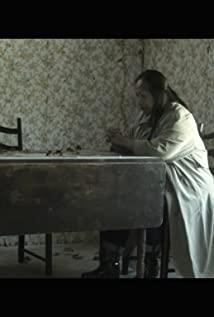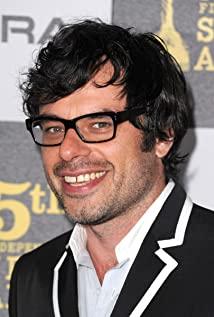At first glance, the Chinese translation of the film is not very accurate, but after watching the film, I found that "Mid-life Crisis" has indeed highly refined Brad's Status (that is, the core noun in the film's English name). Moreover, the mid-life crisis itself is a proposition worthy of writing. You and I may not be middle-aged, but who hasn't encountered a crisis?
At the beginning of the film, a bird's-eye view camera slowly brought the sleepless Brad closer, and then Brad's narration cut in, detailing the reasons for his insomnia.
On the same day, Brad, who was working in a non-profit organization, was asked to leave by his only subordinate, and said he wanted to work in the banking industry. Subordinates told him that he was going to make a lot of money and then donate it, which was better than begging others for donations. Suddenly, Brad found his work so absurd. At night, Brad, who couldn't sleep, thought of his four college classmates, all of whom became industry leaders, either rich, famous, or a combination of money and leisure. As Brad's statement progresses, the soundtrack's violin grows sharper and sharper, as harsh as if a fingernail would be scratching on a blackboard. The strings tied our nerves, and just now we could look down at Brad from above, contempt for his jealousy, pity his weakness, and were quickly pulled back to reality by the taut strings of the violin.
According to the daily life trajectory of more than ten years, Brad will not have any intersection with those classmates who have already attained the Tao, and he will only look up at them silently in his heart when he dreams back in the middle of the night. Unfortunately, however, Brad has a son who is musically gifted and has been stamped by his teacher as "Harvard material". This casts hope in Brad's already unlikely life. Therefore, he picked up the phone and contacted those classmates who had already kicked him out of the circle, hoping to give his son a new opportunity for an interview.
Brad is not a typical loser, he says "what do I have" in the film, but he doesn't have much. First of all, he has a car and a house (forgive my unique Chinese perspective), and secondly, he has a happy family, a wife and children. He and his wife both have decent jobs - he works for a non-profit and his wife works in government. However, people are more dead than people, and goods are thrown away. Compared with his classmates who worked in first-tier cities after graduation, Sacramento, the city he lives in, is lackluster, and the productivity of non-profit organizations cannot be compared with that of the film and television financial circle, so Brad is full of middle class, and others are already standing there. Belongs to the 1% pyramid tip.
Brad's crisis can't be said to be everywhere. For many ordinary people at the time, it was a seven-inch hit. Because economic factors will always be the cornerstone of the choices ordinary people make in their lives. So we tend to be very sensitive to our own economic situation, and more sensitive to the economic situation of others. As shown in the film, passengers in economy class can't take the VIP channel, and they can't be upgraded with discounted tickets, all of which sting Brad's heart. After a few reincarnations with life, Brad clearly knew that he was not doing well, and the worst thing was that others knew the same. Your classmates know that they ignore your emails and don't tell you when they change your phone number; your teacher also knows that even if you were his best student, he wouldn't invite you to speak at school because you're not famous enough . All surrendered to the orderly pyramid of real money and silver.
Brad's few phone calls got his son's business done. Of course, he and his classmates had to come out from behind the phone and have a head-on collision. He wanted to take advantage of the ambiguous atmosphere in the restaurant at night to dig his heart out with his old classmate, but he didn't expect that the closer reality did not eliminate the gap between the two classes. The old classmate's sentence "Why should I compare with you" was completely irritated. Brad. The conversation during the dinner made Brad realize the reality. The so-called old classmates are just passersby who share a journey on the train of life. After the train arrives at the station, everyone will only run for their own future. As Brad's son Troy says at the end of the film, everyone thinks only of themselves. As eloquent as Troy's senior Ananya, she questioned Brad's attitude towards non-profit organizations, and she scorned Brad's troubles, believing that it was only the troubles of middle-class white people and not universal. She cares for people far away from her home in Delhi, and feels sad for the villagers who live on only $2 a day. But then again, are the troubles of the poor in Delhi universal? It was nothing but the troubles of the poor in Delhi. Aren't the troubles of middle-class whites just troubles? It's all troubles, is it necessary to distinguish between the superior and the inferior? This still confirms what Troy said: everyone thinks only of themselves. They think that they are the most important, even if it is their own troubles, they must be a higher priority than others. But, did Troy's senior really take the troubles of the Delhi people as their own? But she was drinking at the bar, chatting with friends, when she was wearing a dress in the concert hall and playing the flute slowly, when she was already in the top university in the United States, did she really remember the people of Derry who are thousands of kilometers away? ? We have no way of knowing.
Back to the topic of the film - midlife crisis. The mid-life crisis is probably more than just an economic crisis and the psychological gap that comes with it. This is not a crisis that exists only in "middle age", it is a common problem of communication between people, even if we speak the same language, we can't really understand each other, because everyone is selfish. Selfishness is a human instinct that cannot be overcome. So the film does not give the answer and the way out, it only gives us a prescription for slow release. At the end of the film, the camera was again given to Brad lying on the bed. He looked at his son who was sleeping peacefully beside him, and thought that there were still many years in the future, and he was relieved a little. This is the placement given by the director. Although it’s unsatisfactory, you and I still have some people to follow: Compared with Brad’s dead college teacher, Brad is at least still alive, compared to another college classmate’s daughter who may have died. Troy is alive at least. The people who stand on the top and the bottom of the mountain, their status is very different, and they are equally insignificant in each other's eyes, but at least they can still stand, right?
View more about Brad's Status reviews











